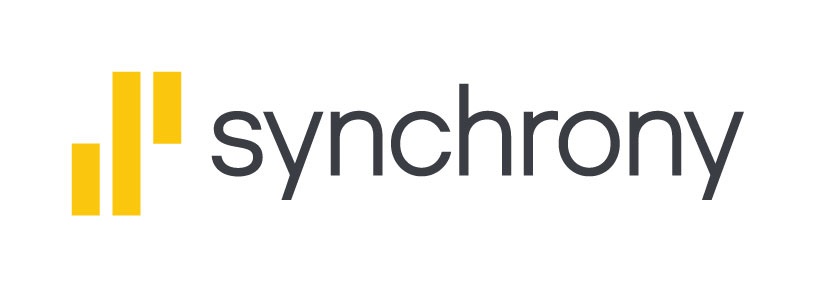Research
Learn more about the APIA community through vetted research and publications from APIA Scholars and other leading research and education organizations.
English Learners (ELs) comprise one of the fastest growing groups in the nation’s K–12 student population, which is driven by a large and growing population of immigrant-origin youth. California is home to one of the highest concentrations of immigrant-origin students with 51.5% of school-age children with one or more foreign-born parents.
Asian Americans are most likely to speak another language at home other than English (74.3%) in addition to Native Hawaiians and Pacific Islanders (41.4%). In California, AANHPI students also represent a critical mass of EL students in the state, comprising 11.8% of the total EL student population. This data is essential to understand because it demonstrates the extent to which the EL population is a large concentration of the AANHPI student population and the AANHPI population makes up a critical mass of ELs in the state. Data sources and methods for this report include a systematic synthesis of the extant literature, as well as findings from listening sessions with California-based administrators, educators, and policy and community advocates.
This report involves collaborative research with 8 colleges to better understand the needs of NHPI student and address their challenges to increase student success on their campuses. Building upon these findings, the report identifies overarching themes relevant to key issues including data disaggregation, and the need for targeted services in higher education and concludes with institutional and policy recommendations to improve outcomes for NHPI students.
APIA Scholars is thrilled to unveil a new research series, the AANAPISI Spotlights: Student Success Series. This series centers Asian American, Native Hawaiian, and Pacific Islander (AANHPI) student voices and stories, while uplifting the role of AANAPISI programs in their educational journeys.
By building awareness of the challenges and experiences faced by AANHPI students, our goal is to highlight how institutions with AANAPISI funding and programs are working to make an impact on the lives of these students. The series will cover key topics such as English Learners, data disaggregation, and effective higher education interventions, which are critical areas for increasing AANHPI student success outcomes.
Linked below is a digital copy of the newly published first brief, featuring Bunker Hill Community College (BHCC) and the story of Althea, a student on a journey of success through her participation in BHCC’s AANAPISI program for English Learners.
Over the past 15 years, Asian American and Native American Pacific Islander-Serving Institutions (AANAPISI) across the United States (U.S.) and U.S. Affiliated Pacific Islands have steadily grown in numbers to enhance the accessibility and quality of higher education for Asian American, Native Hawaiian, and Pacific Islander (AA&NHPI) students. Corresponding to the U.S. Census Bureau’s projection of the AA&NHPI population increasing to nearly 40 million by 2060, the U.S. Department of Education estimates AA&NHPI postsecondary enrollment will grow by 12% within the next four years. Given these demographic changes—and the fact that AANAPISIs enroll and award degrees to almost half of AA&NHPI students nationwide—it is increasingly important to invest in these colleges’ and universities’ capacity to serve AA&NHPI students. Moreover, despite maintaining the second highest number of institutions eligible for the AANAPISI grant, AANAPISIs continue to be the least funded Minority-Serving Institution (MSI) designation. In this brief, national trends offer a glimpse of AANAPISIs’ tremendous growth and impact
Amid a global pandemic that has fundamentally changed how higher education traditionally operates across the nation, it is critically important to understand how college campuses can continue to serve their students, with a special focus on the students who too often are overlooked and underserved. This report lays out the findings from these conversations, in combination with insights gleaned from focus groups of students who live in and/or attend college in the Pacific Islands, in order to shed light on how institutions, students and communities in the region have fared—both prior to the global pandemic as well as now.
Native Hawaiians and Pacific Islanders (NHPIs) have been largely invisible in policy considerations at the federal, state, and local levels, and in the development of campus services and programs. This is driven, in part, by a lack of knowledge about the needs, challenges, and experiences of NHPI students, particularly with regard to the wide range of social and institutional contexts in which they pursue their educational aspirations. This report is a response to a dearth of knowledge about the demogra- phy of NHPI students, their educational trajectory, and their postsecondary outcomes. Specifically, we build on prior research by providing a portrait of NHPI students in American higher education in the continental U.S. and the U.S. affiliated islands throughout the Pacific region
Native Hawaiians and Pacific Islanders (NHPIs)—whose ancestors skillfully navigated islands and oceans while building communities across the Pacific Islands before European colonization—are ethnically diverse and a growing population in the United States (U.S.). Although NHPIs have been federally recognized as a separate racial category due to advocacy from the NHPI community, an underlying barrier to the study of the NHPI population has been data that aggregates NHPIs with Asian Americans. Thus, conflating this community’s reality within an Asian American and Pacific Islander (AAPI) narrative and providing an inaccurate statistical portrait of a unique and highly diverse population. As a result, NHPIs have been largely invisible in policy considerations at the federal, state, and local levels, and in the development of campus services and programs. Simply put, the needs, challenges, and experiences of NHPI students—particularly with regard to the wide range of social and institutional contexts in which they pursue their educational aspirations—are still inadequately represented in higher education.
This report was made possible by a collaborative effort between Asian and Pacific Islander American (APIA) Scholars and Nevada State College. We are indebted to our funder, ECMC Foundation, for their generous support for this endeavor. The authors of this report are Cynthia M. Alcantar and Robert T. Teranishi. Other contributors included Victoria Kim, Vincent Nava, and members of the faculty and staff at NSC.
This report was made possible by a collaborative effort between Asian and Pacific Islander American (APIA) Scholars, the University of Nevada, Las Vegas, and Nevada State College. We are indebted to our funder, ECMC Foundation, for their generous support for this endeavor. The authors of this report are Robert T. Teranishi and Cynthia M. Alcantar. Other contributors included Victoria Kim, Lisa Gilbert, and members of the faculty and staff at UNLV.
APIASF and Asian Americans Advancing Justice | AAJC (Advancing Justice | AAJC) released the report, “Asian American and Pacific Islander Boys and Men: The Risk of Being Missed in the U.S. 2020 Census,” which observes the challenges that make it harder to reach and include Asian American and Pacific Islander (AAPI) boys and men in Census counts. The report examines how low educational attainment, high levels of incarceration, homelessness, and poverty impact the collection of data on AAPI boys and men and the economic implications of being undercounted by the Census. Perpetual challenges to undercounting AAPIs include language and cultural barriers — especially for immigrants who misunderstand the purpose of the Census, how the data is used, and whether they are eligible to participate.
The Asian & Pacific Islander American Scholarship Fund (APIASF), in partnership with the Asian American & Pacific Islander Research Coalition (ARC), released the “Invisible Financial Barriers to College Access for Asian and Pacific Islander Americans” report, which highlights the financial barriers that Asian and Pacific Islander American (APIA) students face transitioning into postsecondary education.
The Condition of College & Career Readiness 2015 is the ACT annual report on the progress of US high school graduates relative to college readiness. This year’s report shows that 59% of students in the 2015 US graduating class took the ACT® test, up from 57% last year and 49% in 2011. The increased number of test takers over the past several years enhances the breadth and depth of the data pool, providing a comprehensive picture of the current graduating class in the context of college readiness as well as offering a glimpse at the emerging educational pipeline.
The Condition of College & Career Readiness 2015 is the ACT annual report on the progress of US high school graduates relative to college readiness. This year’s report shows that 59% of students in the 2015 US graduating class took the ACT® test, up from 57% last year and 49% in 2011. The increased number of test takers over the past several years enhances the breadth and depth of the data pool, providing a comprehensive picture of the current graduating class in the context of college readiness as well as offering a glimpse at the emerging educational pipeline.
The 2015 CARE Report, The Impact of Scholarships for Asian and Pacific Islander American Community College Students: Findings from an Experimental Design Study, outlines the measurable impact of scholarship funding on the educational experiences and academic achievement of APIA community college students from three AANAPISI campus partners: City College of San Francisco, De Anza College, and South Seattle College.
The 2013 APIASF Scholar Perspectives Report, A National Report on the Needs and Experiences of Low-Income Asian and Pacific Islander American Scholarship Recipients is the first of its kind to delve into the needs and experiences of high-performing, low-income APIA scholarship recipients. The data in this report serves as the foundation for APIASF’s evidence-based Scholar programs and services and helps to better inform program and policy decisions at the institutional, state, and federal levels that will accelerate student success.
Refugees from Burma/Myanmar and Bhutan in the United States, written by researchers at the Association for Asian American Studies (AAAS), exposes the demographic characteristics, challenges and policy implications of the two largest refugee arrivals to the U.S., who are largely invisible in the current national discourse on Asian American socioeconomic outcomes.
The 2011 Care Report: The Relevance of Asian Americans & Pacific Islanders in the College Completion Agenda focuses on the relevance of the APIA population to the national college completion agenda. The research is guided by four pillars of education and social change: policy, institutions, research and strategic action.
The 2010 CARE Report: Federal Higher Education Policy Priorities and the Asian and Pacific Islander American Community looks into the need for the United States to increase college degree attainment to stay competitive in the global economy, relating it to the needs of the APIA community. The focus of the report surrounds three principals: education and workforce development, APIAs in the community college sector and minority-serving institution legislation.
Download the full report
Download the General Key Findings
Download the Community College Key Findings
Download the Leadership and Workforce Development Key Findings
Download the MSI and AANAPISI Key Findings
The 2008 CARE Report, titled Asian and Pacific Islander Americans, Facts, Not Fiction: Setting the Record Straight, debunks the “model minority” myth associated with Asian Americans and looks into how these false assumptions have affected the APIA community in higher education.










































